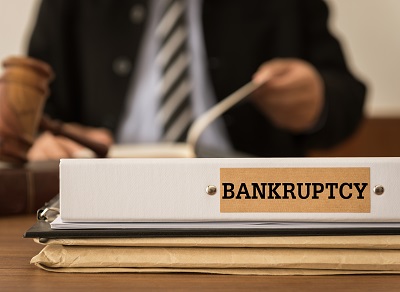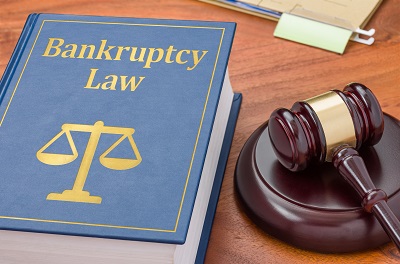Table of Contents
Filing for bankruptcy in Mississippi can be daunting. The seasoned bankruptcy attorneys at Brown, Bass & Jeter understand the stress and uncertainty that comes with overwhelming debt and are here to offer professional guidance and support.
This comprehensive guide will shed light on the bankruptcy process in the Magnolia State, providing helpful insights into Chapters 7 and 13, checklists to keep you organized, and essential filing details.
What Is Bankruptcy?

Bankruptcy is a legal process designed to provide individuals and businesses overwhelmed by debt with a fresh financial start. It involves formally declaring an inability to repay outstanding debts, thereby seeking relief from creditors.
Bankruptcy offers protection from creditor harassment, the possibility of discharging or restructuring debts, and a chance for individuals and entities to regain control of their financial futures while adhering to the rules and regulations outlined in bankruptcy law.
How Does Bankruptcy Work in Mississippi?
Bankruptcy in Mississippi follows the established federal framework applicable across the United States. Here are some of the key aspects of the process.
-
Federal Court Oversight
All bankruptcy cases in Mississippi are filed in federal bankruptcy courts. A bankruptcy judge presides over these cases, making crucial decisions regarding the debtor’s eligibility to file and discharge their debts.
-
Role of the Trustee
The administration of bankruptcy cases is often delegated to a trustee, an official appointed by the United States Trustee Program, which operates under the Department of Justice.
The trustee’s primary responsibility is to represent the debtor’s estate throughout the bankruptcy proceedings. They ensure that the process adheres to established legal standards and safeguards the rights of both the debtor and their creditors.
-
Debt Discharge
Upon completion of the bankruptcy process, eligible debts may be discharged. This means the debtor is no longer legally obligated to repay those debts, offering them a fresh financial start.
While bankruptcy proceeds under federal law, Mississippi has its own unique set of exemptions to protect specific assets from liquidation. It’s advisable to consult a knowledgeable Mississippi bankruptcy attorney to understand these nuances and achieve a favorable outcome.
Will Filing for Bankruptcy Erase My Debts?

Filing for bankruptcy in Mississippi offers the opportunity to eliminate various types of debts, such as credit card balances, overdue utility payments, medical bills, personal loans, and more. In certain cases, you can even free yourself from mortgage or car payments by surrendering the property and securing those debts.
However, it’s crucial to understand that not all debts can be discharged. Debts like domestic support arrearages and recent tax debt are generally non-dischargeable. Discharging student loan debts can also be challenging and typically requires a separate legal proceeding.
How Do I Choose the Right Bankruptcy Chapter in Mississippi?
Selecting the right bankruptcy chapter is a critical decision that hinges on your individual financial situation and goals.
-
Filing for Chapter 7 in Mississippi
Chapter 7 bankruptcy, often referred to as “liquidation bankruptcy,” is a suitable choice if you have limited income and want a quick discharge of unsecured debts.
Chapter 7 offers a relatively swift process, normally concluding in a few months, offering a clean slate by discharging the debtor’s credit card debt, medical bills, and other unsecured obligations. However, it may not be suitable if you have significant assets you wish to retain.
-
Filing for Chapter 13 in Mississippi
Chapter 13, also known as “reorganization bankruptcy,” is a viable option if you have a regular income and want to restructure your debts while retaining your assets. It allows you to create a manageable repayment plan over three to five years.
This plan consolidates your debts, including arrearages on mortgage or car payments, and makes them more affordable while potentially reducing the total amount you owe. Chapter 13 can help you prevent foreclosure or repossession, catch up on missed payments, and achieve long-term debt relief.
-
Other Bankruptcy Filings

Chapters 7 and 13 aren’t the only means of declaring bankruptcy in Mississippi. There are numerous other options, including the following.
-
Chapter 11 Bankruptcy
Chapter 11 is primarily designed for businesses, allowing companies to restructure their debts while continuing their operations. It often involves creating a reorganization plan to repay creditors over time, potentially reducing debt obligations and maintaining business viability.
-
Chapter 9 Bankruptcy
Chapter 9 is exclusively for municipalities and governmental entities. It provides a framework for them to restructure their debts and continue providing essential services to their communities. -
Chapter 12 Bankruptcy
Chapter 12 is intended for family farmers and fishermen, offering them debt relief and a structured repayment plan that often mirrors agricultural seasons and resulting income fluctuations. -
Chapter 15 Bankruptcy
Chapter 15 deals with cross-border insolvencies and foreign bankruptcy cases. It recognizes and enforces foreign proceedings, allowing U.S. courts to cooperate with foreign courts and address issues related to multinational bankruptcies.
How Do I Qualify for Chapter 7 or Chapter 13 Bankruptcy in Mississippi?

Before pursuing Chapter 7 or Chapter 13 bankruptcy, you must confirm your eligibility for either option. Here’s how.
-
Chapter 7 Qualifications
You must meet specific income requirements to qualify for Chapter 7 bankruptcy in Mississippi. The primary factor is the means test, which evaluates your income, expenses, and family size.
If your income falls below the state’s median income for a household of your size, you generally qualify for Chapter 7. However, if your income exceeds this threshold, you may still qualify based on your disposable income after deducting allowable expenses. Additionally, you must not have had a recent bankruptcy discharge, typically within the last eight years.
-
Chapter 13 Qualifications
Qualifying for Chapter 13 involves having a regular source of income to fund a repayment plan. There are no specific income limits, but you must have enough income to cover your living expenses, priority debts (e.g., taxes, child support), and a portion of your unsecured debts (e.g., credit card balances).
Chapter 13 is particularly useful if you want to protect valuable assets, like a home or car, from foreclosure or repossession.
What Are the Bankruptcy Exemptions in Mississippi?

Bankruptcy exemptions specify which assets you can protect from being sold off to pay your creditors when you file for bankruptcy. In Mississippi, you have the option to choose between state exemptions and federal exemptions. Here’s an overview of some key bankruptcy exemptions in Mississippi.
-
Homestead Exemption
Mississippi offers a generous homestead exemption that allows you to protect up to $75,000 in equity in your primary residence (Miss. Code Ann. § 85-3-21).
-
Motor Vehicle Exemption
Mississippi doesn’t have a motor vehicle exemption. Instead, you can protect your car using the $10,000 available for your personal or household property.
-
Insurance Benefits
Insurance is something of a complex issue where bankruptcy is concerned. Here are some key pieces of legislation governing the exemption of insurance benefits:
- Miss. Code Ann. § 83-7-5: Life insurance proceeds held by the insurer.
- Miss. Code Ann. § 85-3-1(b)(ii), 85-3-13: Unlimited life insurance proceeds, with a cap of $50,000 if acquired less than one year before filing or if paid to an executor or administrator.
- Miss. Code Ann. § 85-3-11: Disability benefits.
- Miss. Code Ann. § 85-3-23: Homeowners’ insurance proceeds, with coverage extending up to $75,000, as well as an additional $250 for personal property.
- Miss. Code Ann. § 83-29-39: Fraternal benefit society benefits.
A qualified attorney can tell you more about how filing for bankruptcy will impact your insurance benefits.
-
Personal Property
Mississippi law allows exemptions of up to $10,000 in personal property, which encompasses various items such as motor vehicles, furniture, household goods, appliances, clothing, wedding rings, tools of the trade (items needed for your profession), books, health aids, crops, and even pets (Miss. Code Ann. § 85-3-1(a)).
-
Other notable exemptions include:
- Miss. Code Ann. § 85-3-17: Personal injury awards up to $10,000.
- Miss. Code Ann. § 85-3-1(b)(ii): Sale or insurance proceeds for exempt property.
- Miss. Code Ann. § 85-3-1(i), (j), (k): Exemption of $5,000 for earned income credit and federal or state tax refunds.
- Miss. Code Ann. § 85-3-1(f): Tax-exempt education savings plans.
- Miss. Code Ann. § 85-3-1(g): Health savings account.
- Miss. Code Ann.§ 85-3-13: Life insurance proceeds payable to an executor or administrator are exempt, with a cap of $50,000.
It’s recommended that you discuss these exemptions with your lawyer in greater detail.
-
Mississippi Wildcard for Filers Over 70
Mississippi doesn’t have a motor vehicle exemption. Instead, you can protect your car using the $10,000 available for your personal or household property.
-
Pension, Retirement, and Life Insurance Benefits
Most retirement accounts, including 401(k)s, IRAs, and pensions, are generally exempt from bankruptcy proceedings in Mississippi.
-
Public Benefits
Public benefits, such as Social Security, unemployment compensation, veterans’ benefits, and various assistance programs, are also typically exempt from bankruptcy in Mississippi. These exemptions serve to ensure that individuals and families in need continue to receive essential support during difficult financial times.
When Can I Use Mississippi Bankruptcy Exemptions?

You can file for bankruptcy in Mississippi after living there for more than 180 days. However, you must have lived in the state for at least 730 days before you can make use of state-specific exemptions. If you haven’t, you must use the exemptions of the previous state where you lived.
When you file for bankruptcy, you’ll have the option to choose between using Mississippi’s state-specific bankruptcy exemptions or the federal bankruptcy exemptions. However, you can’t mix and match between the two systems. It’s crucial to carefully consider which set of exemptions is more advantageous for your particular financial situation.
How Much Does It Cost to File for Bankruptcy in Mississippi?
Filing for bankruptcy in Mississippi involves multiple fees and expenses, including court filing, credit counseling, and attorney fees. Here’s a breakdown of these costs:
- Court Filing Fees: The fee for filing Chapter 7 bankruptcy in Mississippi is $338; for Chapter 13 bankruptcy, it’s $313.
- Credit Counseling and Debtor Education Fees: Before filing for bankruptcy, you’re required to complete credit counseling and debtor education courses, which typically cost between $25 and $50 each.
- Attorney Fees: It’s highly advisable to hire an experienced bankruptcy attorney in order to navigate the bankruptcy process successfully; in Mississippi, attorney fees for bankruptcy cases often range from $1,000 to $2,500 or more.
Depending on your specific circumstances, there may be additional costs associated with your bankruptcy, such as document preparation fees, notary fees, and mailing costs.

Let Us Fight for Justice on Your Behalf
Submit for a Free Case Review!
Reach out and contact our Jackson, MS personal injury attorney today for a free case evaluation.
How to File for Bankruptcy in Mississippi — Bankruptcy Steps Checklist
Filing for bankruptcy in Mississippi is a complex process with many steps. The following overview will give you a better idea of what will be required of you.
1. Gather the Necessary Documentation
The first and most crucial step is to amass a collection of documents showing that you’re unable to pay your outstanding debts. These documents will include:
Tax Documents:
- Two years of tax returns (for Chapter 7);
- Four years of tax returns (for Chapter 13);
- Tax transcripts if you don’t have copies of your returns.
Proof of Income (Last Six Months):
- Paycheck stubs from your employer;
- Proof of income from other sources (e.g., unemployment benefits, alimony, or other income);
- Bank statements (last two months);
- Investment and retirement account statements (last two months).
Identification Documents:
- Driver’s license, ID card, government ID, or passport (name must match your petition);
- Social Security card or proof of your Social Security number.
Property Valuation:
- Mortgage and car loan statements (to verify balances owed);
- Home valuation (Realtor.com, Zillow);
- Car valuation (Nada.com, Kelley Blue Book);
- Valuation of antiques and unusual items (eBay);
- Photographs of rare, antique, and collectible items;
- Photographs of damaged property;
- Repair estimates for damaged property.
Business Documents (If Applicable):
- 12 monthly profit and loss statements;
- Two yearly profit and loss statements;
- Copies of any liability insurance policies.
Bankruptcy Petition Preparation:
- Household property list with values (group small items like clothing, cookware, and bedding);
- Credit card and other billing statements;
- Credit report (obtain a free copy here);
- Credit counseling completion certificate.
Additional Information for the Creditors’ Meeting:
- Bank statements showing the balance on the filing date (ensure that the entire balance is exempt);
- Other documents reasonably related to your financial affairs.
Post-Creditors’ Meeting:
- Debtor’s education course completion certificate.
This list isn’t necessarily comprehensive, and you may be expected to present other documents to the court or your creditors.
2. Attend a Credit Counseling Course

Before initiating bankruptcy, you must undergo a credit counseling course through a state-approved provider. Course fees typically range from $15 to $50, although income-based fee waivers are available from many providers.
The credit counseling course aims to provide a more complete understanding of various financial aspects, including the types of debt relief solutions available, the repercussions of bankruptcy filings, and the distinctions between Chapter 7 and Chapter 13 bankruptcies.
Upon completion, the provider will issue a certificate, which you must submit to the bankruptcy court alongside the other required forms. This certificate will remain valid for 180 days. If you don’t file bankruptcy within this timeframe, a reevaluation course and a new certificate will be necessary before you can proceed with the filing.
3. Complete and Print the Required Bankruptcy Forms
After assembling all your essential financial documents and completing the mandatory credit counseling course, the next step is to complete the appropriate bankruptcy forms.
Most of these forms are federally standardized and provided by the U.S. government at no cost — they can be conveniently downloaded as PDFs. For Chapter 7 filings, make sure you only download the relevant forms.
These forms constitute the foundation of your bankruptcy case. As such, providing complete and accurate information is paramount. Your assigned case trustee will thoroughly review and verify the information you submit.
Consult the U.S. Bankruptcy Court’s official form instructions for assistance with form preparation.
Print your finalized bankruptcy forms in black ink on standard letter-size paper (8.5 x 11 inches). Avoid double-sided printing. You’ll need to organize the forms with dividers indicating each place where you must sign your name (this can get confusing, so use the provided checklist to make sure you don’t forget anything).
Finally, sign your forms in every place where your signature is required using black or blue ink.
4. Pay the Appropriate Filing Fee

The Chapter 7 bankruptcy filing fee is $338. You should submit this fee to the court concurrently with your bankruptcy forms.
Certain circumstances may compel swift bankruptcy filings. For instance, if wage garnishment, foreclosure, or repossession is imminent, you can request permission to pay the filing fee in installments, with the court specifying due dates for each payment.
Alternatively, if financial constraints prevent fee-saving or installment payments, you can apply for a fee waiver from the court. To qualify, your household income must fall below 150% of the poverty guidelines outlined in the Mississippi Fee Waiver Eligibility table.
5. File Your Forms with the Mississippi Bankruptcy Court
Bankruptcy attorneys have exclusive access to Mississippi’s electronic filing system. However, individuals can still file their printed and signed bankruptcy forms through alternative means, either by personally delivering them to the clerk’s office or via mail.
If you’re in a hurry to file bankruptcy to stop a wage garnishment or other creditor action, in-person filing offers the quickest route.
6. Mail the Requested Documents to Your Trustee

When you file for bankruptcy in Mississippi, the court will automatically assign you a case trustee and notify you of their decision within a few days. The notification will include essential details like your trustee’s name, contact information, and the specifics of your upcoming 341 meeting.
Under the Bankruptcy Code, you’re required to furnish your case trustee with copies of specific documents at least seven days before your scheduled 341 meeting. These documents may include any or all of the following.
Tax Returns
Your trustee will request that you hand over copies of your tax returns for the previous two years. If you’re exempt from filing tax returns, you should submit a signed document confirming this status to prevent any misunderstandings.
Bank Statements
You’ll also be expected to provide a bank statement that covers the date of your bankruptcy case filing for each account under your name. The statement must reflect the running balance for the account, not merely a list of transactions.
Other Miscellaneous Documents
Be prepared also to supply any other documents your trustee requests in advance. In most cases, Chapter 7 trustees will ask for pay stubs (often referred to as “pay advices”) spanning the 60 days preceding your case filing, a copy of your Social Security card, and a current government-issued photo ID.
Your trustee will typically communicate these requirements in a letter shortly after your case is filed, specifying where and how to send the requested documents.
In adherence to Mississippi law, you must file a certificate of service with the bankruptcy court to inform them of what you’ve sent and when after forwarding your documents to your trustee.
7. Take a Debtor Education Course

Every individual filing for bankruptcy is ordered to attend a debtor education course from an approved state provider. This course focuses on prudent financial strategies and money-saving techniques to empower you in making the most of your fresh financial start.
At the end of the course, your provider will furnish you with a certificate of completion. You must download and fill out Form 423 using the information provided on the certificate before submitting the form to the court.
Failing to file Form 423 within 60 days after your 341 meeting may result in the court closing your case without a discharge, leaving you responsible for all outstanding debts.
8. Attend Your 341 Meeting
Approximately 20–40 days after submitting your bankruptcy forms, you’ll be required to attend a meeting of creditors, or 341 meeting.
The notice sent by the court will specify the location of your meeting. In the Northern District of Mississippi, 341 meetings are held in Aberdeen, Greenville, Oxford, and Southaven. In the Southern District, they occur in Hattiesburg, Jackson, and Gulfport. Your meeting location is assigned based on where you live.
You must bring a valid government-issued photo ID and your Social Security card (or alternative proof of your Social Security number) to your 341 meeting. Attendance and punctuality are critical.
Chapter 7 341 meetings typically conclude in under 10 minutes, and the court typically grants discharge within 60–90 days following the meeting.
Mississippi Bankruptcy Means Test
The means test is a dual assessment designed to determine your capacity to settle debts.
The first phase assesses your family’s income against the median income for families in your state. If your income falls below this threshold, you automatically qualify for Chapter 7. If it’s above this threshold, you must proceed to the second segment of the means test.
The second phase computes your monthly disposable income after accounting for priority debt payments (such as child support, alimony, or taxes), secured debt payments (such as a car loan), and standard living expenses.
If your remaining income is sufficient to cover at least 25% of your other debts, you don’t qualify for Chapter 7. In such cases, the court will likely convert your case into a Chapter 13 bankruptcy filing, enabling you to repay that 25% or more via a structured repayment plan.
Median Income Standards for Cases Filed in 2023
| Household Size | Monthly Income | Annual Income |
|---|---|---|
| 1 | $4,050.25 | $48,603.00 |
| 2 | $5,081.75 | $60,981.00 |
| 3 | $5,912.50 | $70,950.00 |
| 4 | $7,214.42 | $86,573.00 |
| 5 | $8,039.42 | $96,473.00 |
| 6 | $8,864.42 | $106,373.00 |
| 7 | $9,689.42 | $116,273.00 |
| 8 | $10,514.42 | $126,173.00 |
| 9 | $11,339.42 | $136,073.00 |
| 10 | $12,164.42 | $145,973.00 |
Fee Waiver Eligibility for Cases Filed in 2023
| Household Size | State Poverty Level | Fee Waiver Limit (150% PL) |
|---|---|---|
| 1 | $1,132.50 | $1,698.75 |
| 2 | $1,525.83 | $2,288.75 |
| 3 | $1,919.17 | $2,878.75 |
| 4 | $2,312.50 | $3,468.75 |
| 5 | $2,705.83 | $4,058.75 |
| 6 | $3,099.17 | $4,648.75 |
| 7 | $3,492.50 | $5,238.75 |
| 8 | $3,885.83 | $5,828.75 |
| 9 | $4,279.17 | $6,418.75 |
| 10 | $4,672.50 | $7,008.75 |
Mississippi Bankruptcy Court Locations and Websites
Below is a complete list of the bankruptcy court districts in Mississippi, along with their respective websites and locations.
1. Northern District of Mississippi
Website: U.S. Bankruptcy Court — Northern District of Mississippi
Court Location (Aberdeen Division):
- Address: 703 MS-145, Aberdeen, MS 39730
- Phone: (662) 369-2596
2. Southern District of Mississippi
Website: U.S. Bankruptcy Court — Southern District of Mississippi
Court Locations:
Jackson Division:
Address: 501 Court St, Jackson, MS 39201
Phone: (601) 608-4600
Hattiesburg Division (Hearings Only):
- Address: 701 Main St, Hattiesburg, MS 39401
Natchez Division (Hearings Only):
-
Address: 115 S Pearl St, Natchez, MS 39120
Gulfport Division:
- Address: 2012 15th St, Gulfport, MS 39501
- Phone: (228) 563-1790
You must file for bankruptcy and report to the appropriate district court based on where you live.



